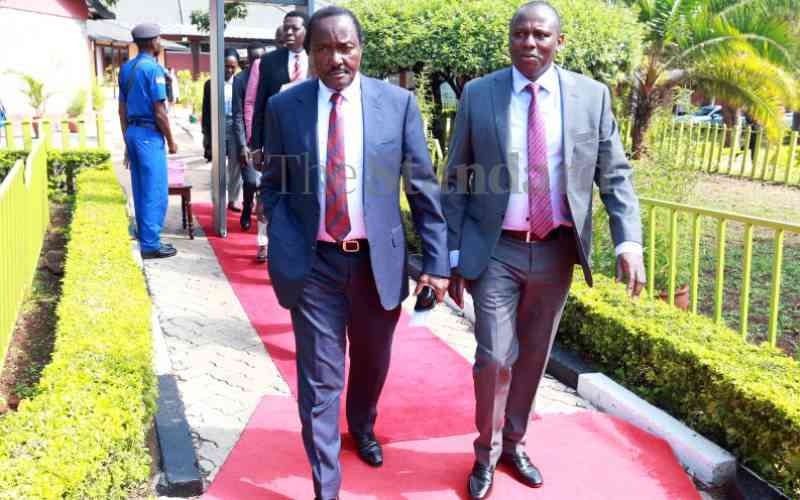×
The Standard e-Paper
Stay Informed, Even Offline

The fate of the ongoing bipartisan talks appears shaky following differences that have persisted since the dialogue began in August.
At a press briefing yesterday, the National Dialogue Committee said they were yet to agree on contentious issues, some of which have previously threatened to derail the talks.